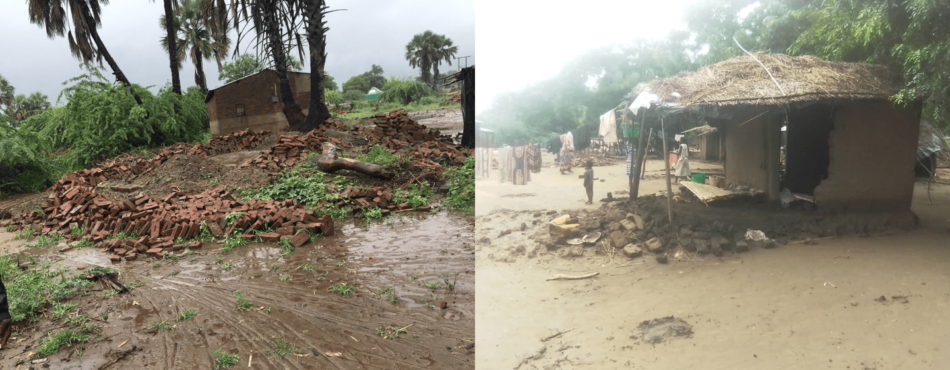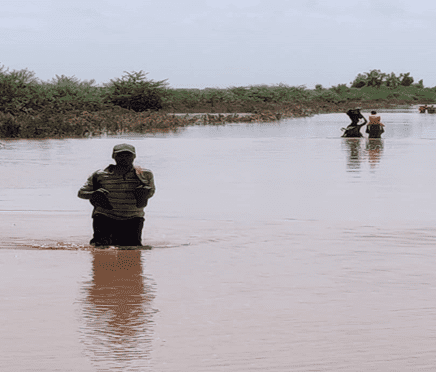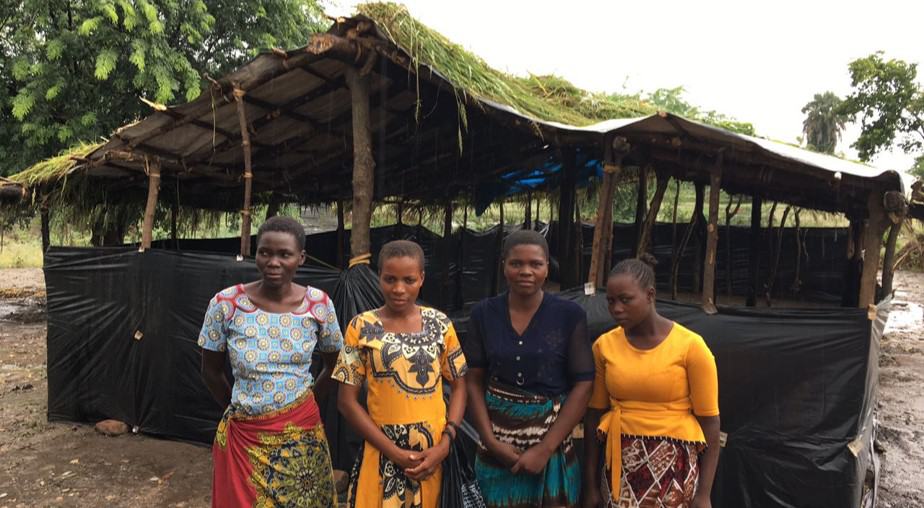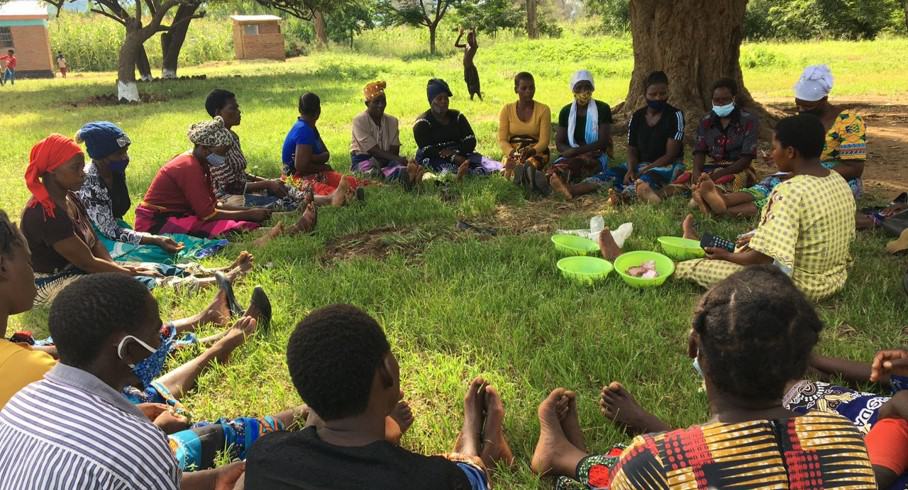The latest report from the Intergovernmental Panel on Climate Change (IPCC) – the UN body for assessing the science related to climate change – considers the climate crisis to be reaching a tipping point. Scientists warn that time is soon running out if we are to mitigate average temperatures rising by more than 1.5°C and prevent the catastrophic impact this will have on societies, economies and environments around the world.
A recent UN report lays out how climate-related disasters are already becoming more frequent and more devastating across developing nations. Disruption to water availability and food security, as well as the cost to human health, loss of biodiversity and destruction of infrastructure, are to name just a few of the consequences of this.
Despite many being the lowest contributors to greenhouse gas emissions and global warming, countries across Africa are likely to be disproportionately burdened and face some of the worst effects of the crisis.
In the countries where we work – Kenya, Malawi, Tanzania, Uganda and Zimbabwe – the climate crisis is no longer just a case of moderating a frightening future, but addressing a harsh reality involving direct challenges in the here and now.
Recent events in Malawi have been particularly alarming. In January, Tropical Storm Ana swept its way inland from the Indian Ocean, causing widespread destruction to communities across Madagascar and Mozambique, eventually reaching Malawi. The UN Sustainable Development Group considers Malawi to be “among those hit the hardest by the adverse effects of extreme weather conditions. The country is susceptible to droughts, dry spells, and flooding, and is also indirectly hit by cyclones that make landfall in Northern Mozambique”. The storm joins a list of climate-related extreme rainfall events that have affected the region, which will only continue to grow according to the World Meteorological Organization.

Chikwawa District, where we have been supporting 12 rural communities through our Pre-School Program and Kids’ Club Program since September 2021, was one of the areas worst affected by the storm. In the district, flooding has impacted more than 84,000 households causing loss of life, property damage and displacement, destruction of crops and cattle, and reduced access to food and medicine, the effects of which continue to be felt particularly by isolated families and communities.
The situation in Malawi has raised some important questions for us…
- How can we adapt to support the communities to recover?
- What can we learn from the recent events?
Working closely with our partner in the region, MPC Blantyre, we were able to respond quickly in the aftermath of the flooding. This was in no small part down to their Program Officer, Davie (pictured on the right), who lives nearby to the communities; when they were most at risk of being isolated and cut off, we were able to stay connected.
We listened to community members, learnt about their situations, and prioritized an emergency program that would address the most urgent needs. Three key areas were identified:

- Supporting the repair of damaged properties and infrastructure, including supplying building materials and temporary shelters.
- Securing food provisions so that children, pre-school teachers, and Kids’ Club volunteers all have access to at least one nutritious meal a day.
- Ensuring children have access to psychological support so they can process their trauma in a safe environment.
Whilst this immediate work is underway and progressing well, we cannot simply return to the plan we had before the flooding. A new needs assessment must be carried out and we will need to continue to flex and adapt alongside MPC Blantyre in the running of our programs to truly have an impact on vulnerable children.

Pictured above are four pre-school teachers in front of a temporary shelter.
From this crisis, it is clearer than ever that the effects of climate change are extremely amplified for isolated families and communities living in poverty and without financial security.
A key next step in helping the communities in Chikwawa get back on their feet, rebuild and become resilient will be to launch our economic empowerment initiative, the Village Investors Program (VIP). Through the VIP, we establish village savings and loans groups for parents and guardians of vulnerable children and provide training in community banking, business and financial skills.
By learning to pool their finances together, VIP members are able to take out loans to invest in their businesses and develop a sustainable income. By paying back the loans with an agreed upon interest rate, the group’s finances build over time which benefits everyone in the group.
As part of a VIP group, members also set up a joint Income Generating Activity (IGA), such as purchasing large quantities of regular goods like flour and cooking oil at wholesale prices, which they can sell within the group for a profit. This helps members to diversify their income stream and further strengthen their family’s financial security.

Pictured above are two VIP groups from Kawere, Malawi, who are now running independently of our support.
The climate crisis is an emergency that requires action on a global scale. We believe this approach – considering both recovery in the short term and building new capacity and resilience in the long term – will be crucial for us to maximize the impact of our programs in the face of the uncertainty created by the crisis.
Listening to the communities and families we work with, learning from their experiences and always putting vulnerable children first will be essential steps for us in this process.
To learn more about the current situation in Chikwawa and what we are doing to support communities there, watch this video to hear from our Africa Director, Oswald Malunda, who recently returned from a visit to Malawi.
With special thanks to everyone who donated towards an appeal launched by our founders, Phil and Wendy, to help fund our emergency support program in Malawi.



